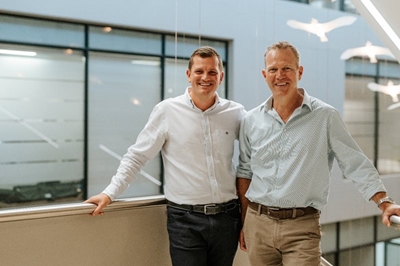Sponsored Content
BUSINESS NEWS - As with most things in life, investing has an element of uncertainty, and that uncertainty often leads to hesitation.
Many investors struggle with the decision to act, whether it’s entering the market, rebalancing their portfolios or changing certain positions.
But inaction itself is a decision—one that can have real consequences. If you hesitated over the past 12 months, thinking that markets and global politics were too “uncertain” to enter markets, you may have missed out on returns of more than 25% in Rand value from the local market and over 10% in Dollar terms from the US market.
People tend to think that investing is complicated, but in truth it really isn’t - and yet it is at the same time.
Lessons for investing:
1) In every market, it is you who controls what matters most.
The average investor feels mostly lost and can be quite emotional when it comes to the volatility of investment markets, which is understandable. You must remember that the biggest predictor of your long-term financial success isn’t what President Donald Trump does or what President Cyril Ramaphosa says - it’s you. Successfully investing is made up of a number of uncomplicated principles such as having a globally diversified portfolio and seeking sound advice. The highs and lows of the market is beyond your control, but how you choose to behave in response to the markets is within your power and is more important as a driver of the returns you achieve.
2) Understanding risk.
Risk is not a loss on paper. Risk is not underperforming your friends and family. Risk is not falling behind the stock markets. Real risk is the probability that you will not be able to live the kind of life that you have envisaged and planned for. Therefore, if you have a long-term investment horizon, you are not taking on excessive risk by investing in a globally diversified portfolio.
3) Trouble is opportunity.
We are all familiar with Warren Buffett’s quote: “Be fearful when others are greedy, and greedy when others are fearful”. Yet so few of us are able to successfully view a market downturn as the opportunity it truly represents.
Here are some common myths about financial planning and investing and the truth behind them.
1. You only need financial advice closer to retirement
Myth: Planning starts at age 55 to 60.
Reality: Starting early allows for greater growth and less stress later in life.
Financial planning has no age limit. The earlier you begin, the better you can benefit from compound interest, steady returns, and long-term investment growth. Regardless of age, the fundamentals remain the same — set goals, manage a budget and invest wisely.
2. Financial planning is a once-off exercise
Myth: You draft a plan once and you’re done.
Reality: Your plan should evolve with your life.
Life changes — marriage, children, career shifts, divorce or illness — and so should your financial plan. Meeting with your adviser regularly ensures your goals, strategies and policies stay aligned with your personal circumstances.
3. Financial advice is too expensive
Myth: I can’t afford a financial adviser.
Reality: Many advisers offer flexible and transparent fee models.
Understanding the costs upfront is key and, in many cases, the long-term value gained from a sound financial strategy outweighs the fees. It’s worth checking whether fees are negotiable or based on sliding scales depending on your assets.
4. Financial planning is just about investing
Myth: It’s all about beating the markets.
Reality: Financial planning is about identifying your financial goals based your personal circumstances and putting together a roadmap for reaching those goals. Investment planning is just one aspect of your larger financial plan.
A good financial plan considers legislation, tax implications, personal goals and risk management, not only investment returns. Your adviser should help you stay up to date with changes in regulations and ensure your plan still serves your evolving needs. Trying to time the markets is risky; instead, your investment strategy should match your long-term objectives.
5. I can do it all myself online
Myth: Google and Artificial Intelligence provide enough knowledge to invest and plan.
Reality: Online tools are helpful, but they can’t replace personal advice.
While online tools and investment apps are great resources, they don’t replace human expertise—especially when it comes to navigating complex tax laws, retirement strategies and market trends. Working with a qualified adviser provides clarity, accountability and peace of mind.
“Successful investing takes time, discipline, and patience” - Warren Buffet
Our office details in the Garden Route:
PSG Wealth Mossel Bay Diaz
PSG Wealth Outeniqua

‘We bring you the latest Garden Route, Hessequa, Karoo news’















